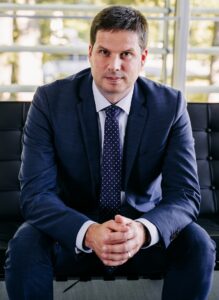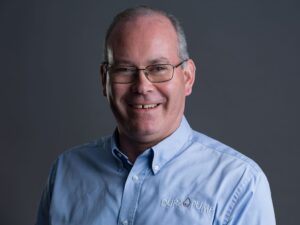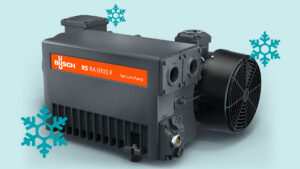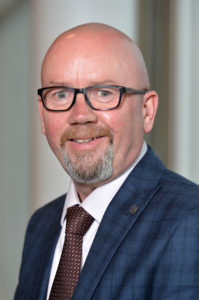General Motors Mexican Automobile Plant Wins Prestigious Stockholm Industry Water Award
Proving that more products can be manufactured with less water, and that corporate environmental sustainability can go hand-in-hand with the financial bottom line, the General Motors de Mexico Ramos Arizpe Complex was announced today as the 2001 recipient of the prestigious Stockholm Industry Water Award.
The award, which is given by the Stockholm Water Foundation, the Royal Swedish Academy of Engineering Sciences and the World Business Council for Sustainable Development, recognizes the facility's "extensive use of water and wastewater treatment and recycling techniques that convert saline into potable water and conserve a scarce resource." The Ramos Arizpe Complex, an automotive production facility located in an area of extreme water scarcity 85 km west of Monterrey, was cited by a committee of international experts as an outstanding example of corporate sustainable water use.
"We are extremely impressed by the wide range of coupled solutions that GM has adopted," said Björn Rosén, chairman of the nominating committee. The facility, he said, enhanced production while at the same time reduced water consumption through reuse of both industrial and sanitary wastewater within production processes. Together with a commitment to continuous improvement, GM's Ramos Arizpe Complex demonstrates good competence by utilizing appropriate technology for differing circumstances. By manufacturing more products with less water, it also demonstrates the win-win opportunity to reduce costs while simultaneously improving the environment - a reflection that successful technical and economic results can be combined with a strong social commitment.
The award will be presented to GM de Mexico on August 15 during the annual World Water Week in Stockholm. It recognizes innovative corporate development of water and wastewater process technologies as well as contributions to environmental improvement through improved performance in production processes and new products.
Local water scarcity and corporate responsibility drive innovations
The complex opened in 1980 in Ramos Arizpe (pop. 40,000), an area where the only source of water was a small, semi-confined aquifer with a relatively high salt content (0.2%). The company's challenge was to secure water for production without depleting the aquifer (which is also the local drinking water source), desalinate the well water supply, and establish a recycling and reuse process for the industrial and sanitary wastewater -- all within the framework of an intensive water conservation program.
To help reduce its consumption from the aquifer, the facility employed a variety of physical, chemical and biological wastewater treatment processes to recover and reuse 70% of its industrial wastewater. The selective use of different processes - whether advanced (micro-filtration), simple (solar evaporation ponds), or high tech (membrane filtration) - enabled the facility to effectively tailor its water conservation and recovery program as needed, and to make it as efficient and cost-effective as possible. To convert brine to solid salts and thus facilitate their removal, a recovery system involving micro-filtration, reverse osmosis and solar evaporation ponds was used. This promoted efficient use of well water by increasing the useable amount withdrawn from 67% to 94%.
Through such efforts, GM de Mexico has reduced annual well water withdrawal from 1,470,000 m3/year in 1986 to 700,000 m3 in 2000. At the same time, the complex has increased annual production 7-fold while reducing the average amount of well water needed to produce a vehicle from 32 m3 to 2.2 m3.
The integrative solutions have been a success for both the region and the production complex, which employs nearly 6,000 local residents and now produces annually some 590,000 engines and 222,000 passenger vehicles, mainly the Chevrolet Cavalier, Pontiac Sunfire and Chevy 3-, 4- and 5-door pickups.
"When the Ramos Arizpe Complex expanded its operations, one of the major challenges we faced was the scarcity of water", said Hank Hale, Director of Manufacturing for GM de Mexico, which is headquartered in Mexico City and also operates production facilities in Silao and Toluca. "We had to keep looking for innovative solutions to solve this problem of the region. Now we even have a treatment waste water storage lagoon with fish and birds as a testimony of our social responsibility to develop sustainable business."
"As one of the world's largest industrial companies, General Motors has understood for many years that we must do more than simply provide the products and services that consumers want to buy," says Dennis Minano, GM vice president, and chief environmental officer. "We are guided by a strong, broad, global vision of sustainability and corporate stewardship, combining the power of our people and our technologies to meet the social, environmental and economic needs of the world. We are proud of the people working at our Ramos Arizpe Complex and the work they have done to achieve better quality water for both the plant and community, and thank the Stockholm Water Foundation, Royal Swedish Academy of Engineering Sciences and the World Business Council for Sustainable Development for honoring their efforts."
Stockholm Industry Water Award
The Stockholm Industry Water Award was established in 2000 by the Stockholm Water Foundation in cooperation with the Royal Swedish Academy of Engineering Sciences and the World Business Council for Sustainable Development. They are represented on the international nominating committee together with experts representing the International Water Association, the Global Water Partnership, and international academia. Last year, the first Stockholm Industry Water Award has been awarded to Northumbrian Water Limited, a water and wastewater treatment provider for Northeastern England.
Stockholm International Water Institute (SIWI)
The Stockholm International Water Institute (SIWI), a scientific, technical and awareness-building organization, contributes to international efforts to combat the escalating global water crisis by facilitating research, raising understanding and stimulating action on world water issues. SIWI administers the Stockholm Water Prize, Stockholm Junior Water Prize, Stockholm Water Symposium, Stockholm Water Initiative, Stockholm Industry Water Award and Swedish Baltic Sea Water Award.







